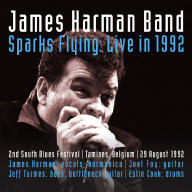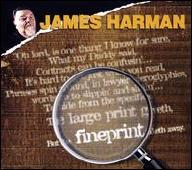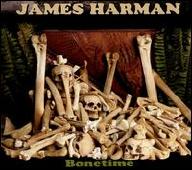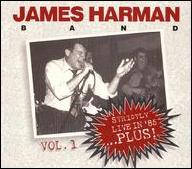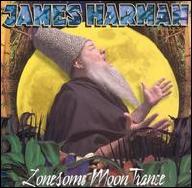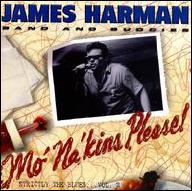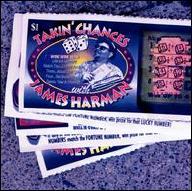Born in Anniston, Alabama on June 8, 1946, Harman began playing piano at the age of four. He soon discovered his father's harmonicas in the family's piano bench, so he taught himself how to play the harp, then picked up the guitar and drums. Soon, he discovered the blues and began playing with local blues guitarist Radio Johnson. At the age of 16, he moved to Panama City, Florida, and started playing in local blues and R&B bands, winding up in the Icehouse Blues Band. He signed a management deal with Earl Caldwell, who also managed the Swingin' Medallions, who helped shop singles to various local Florida imprints. None of these went anywhere, so he spent some time in New York, Miami, New Orleans, and Chicago before landing in Southern California in the 1970s. After battling health problems, he continued to lead a lineup of the Icehouse Blues Band, which eventually evolved into the James Harman Band in 1977.
The James Harman Band featured a number of prominent players, particularly in its earliest years when it featured Phil Alvin and Bill Bateman, who left the group to form the Blasters. Harman built up enough of a following to sign with Enigma in 1983, releasing Thank You Baby as his debut. Rhino issued Those Dangerous Gentlemen in 1987, which was followed by Extra Napkins in 1988. After Rivera released Strictly Live... In 85! in 1990, he moved to Black Top and stayed there through the '90s, releasing four albums for the label. Cannonball put out two records at the end of the '90s -- Takin' Chances in 1998 and Mo' Na'Kins, Please! in 1999 -- and he moved to Gulf Coast for Lonesome Moon Trance in 2003. Harman was quiet on the recording front during the remainder of the 2000s -- although he did cameo on two ZZ Top albums, contributing to 2003's Mescalero and 2012's La Futura -- returning in 2015 with Bonetime on the Electro-Fi imprint. Three years later, he delivered Fineprint. ~ Stephen Thomas Erlewine, Rovi


